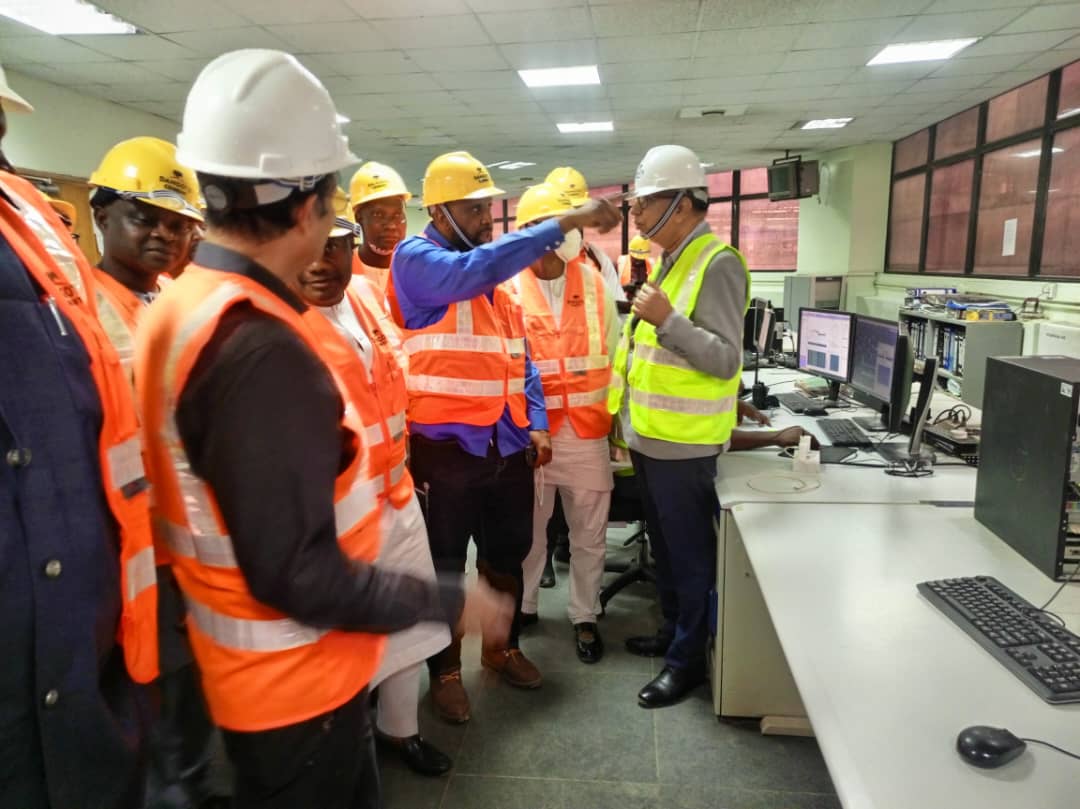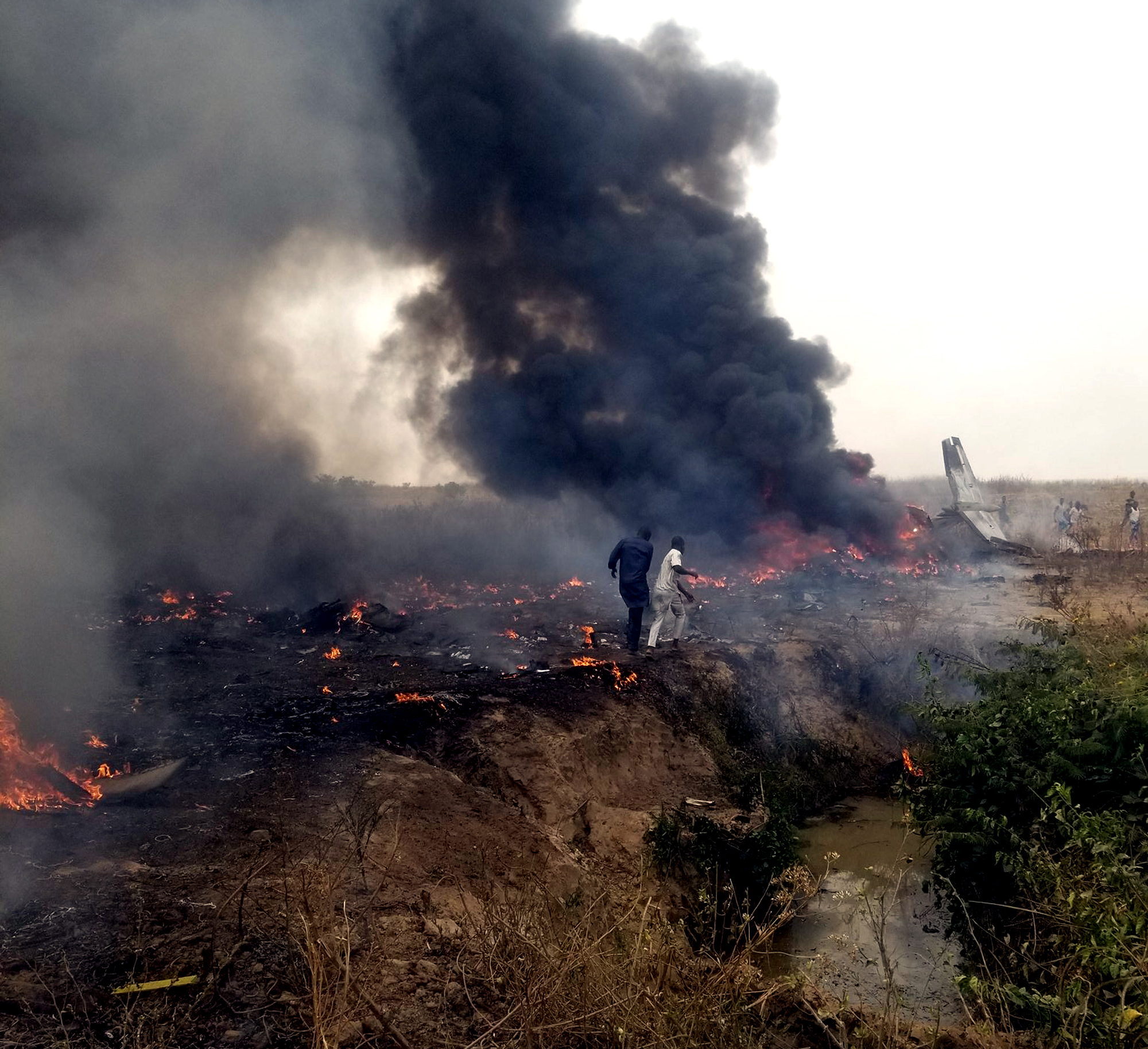NEWS
Reps Back Dangote’s Industrialisation Stride

Dangote Group’s industrialisation stride in Nigeria has received yet another momentum as federal lawmakers back the company’s stride.
Members of the House of Representatives who visited Dangote Cement Plc in Obajana, Kogi State, expressed their delight at the economic impact the company has made in Nigeria’s cement subsector.
Speaking during the visit, Rep.
Gaza Gbefwi, Chairman, House Committee on Solid Minerals, emphasised the need for collaboration between Nigeria’s political leaders and investors.He noted that Dangote Cement has paved the way with its substantial investments, job creation, tax contributions, and more.
He stated that the visit by the joint subcommittee on Solid Minerals and Commerce was partly aimed at investigating the reasons behind the current cement prices and collaboratively seeking solutions.
Responding to the visiting lawmakers about the current prices, Mr Arvind Pathak, Group Managing Director of Dangote Cement Plc, stated that cement inputs are dollar-driven except limestone which is found in Nigeria.
Some of these inputs, according to him include: machineries, spare parts, the gas for fuel and Gypsum which is one of the raw materials.
Pathak explained that the rise and instability in foreign exchange rates have been significant factors contributing to the current prices of cement products.
He said Dangote Group is Nigeria’s largest employer outside of government.
He also explained that compared to 2021, the salaries of the company’s employees have been increased by 21.3 per cent in 2022 to 47.5 per cent in 2023 and 63.2 per cent in 2024.
The salary increase was meant to meet up the inflation in the country.
Reacting also, Plant Director, Dangote Cement Plc, Obajana, said that the transport segment of the Cement company has introduced CNG trucks to its fleet.
He also said that the company has invested in alternative fuel projects to demonstrate its initiatives to clean up Nigeria.
“The alternative fuel project uses biomass waste which is blocking the fertile land as a source of clean energy.
The ambition of the company is to make Nigeria visible for its contribution towards reduction in Global warming.”
Nawabuddin said the social intervention schemes of the company run into billions of naira, adding that the company would not rest on its oars.
The Plant Director said that by incorporating advanced technologies and maintenance strategies, Dangote Cement has upheld operational efficiency while upholding its social commitments.
He listed some of the community related intervention schemes embedded in the Community Development Agreement (CDA).
They include: provision of scholarship, construction of blocks of classrooms, construction of boreholes, building of hospitals and construction, and rehabilitation of road networks.
Nawabuddin explained that the company has delivered a multimillion Naira health facility at Iwaa, one of the mining communities, as well as launched several other empowerment schemes.
He also said that the Dangote Cement Plc is set to deliver a multimillion Naira Aliko Dangote Skills Development Centre in Lokoja, the Kogi State capital.
According to him, the company is one of the biggest tax payers in the country, surpassing the banking sector in 2023.
The lawmakers also visited the Dangote Plant at Okpella Edo State.
Plant Director, Dangote Cement Plc, Okpella, Edo State, Ismail Muhammad, said the company has invested hugely in state-of-the art facility in its bid to achieve operational efficiency (NAN)
Foreign News
Trump Tells Iran to Make Nuclear Deal ‘Before it is too Late’

U.S. President Donald Trump has called on Iran to conclude an agreement with Washington on its controversial nuclear programme, amid a series of Israeli strikes on nuclear facilities and military leaders.
“There is still time to make this slaughter come to an end,” Trump wrote on his social media platform Truth Social on Friday.
“Iran must make a deal, before there is nothing left, and save what was once known as the Iranian Empire,” Trump continued.
“JUST DO IT, BEFORE IT IS TOO LATE.”Observers consider it unlikely that Iran’s leadership would opt for a diplomatic approach in light of the Israeli attacks.
Israeli media reported that Tehran had retaliated with an attack involving about 100 drones, all of which were shot down.
“I gave Iran chance after chance to make a deal,” Trump wrote.
“The U.S. makes the best and most lethal military equipment anywhere in the World, BY FAR, and Israel has a lot of it, with much more to come and they know how to use it,” Trump wrote. (dpa/NAN)
NEWS
Nigeria Condoles India over Tragic Plane Crash

The Federal Government on Thursday condoled the Indian government over the tragic crash of Air India Flight-171 in Ahmedabad.The Minister of Foreign Affairs, Amb. Yusuf Tuggar, disclosed this in a statement issued by Kimiebi Ebienfa, Spokesperson of theMinistry.Tuggar said, “Nigeria expresses profound sorrow and extends its heartfelt condolences to the government and people of India over the tragic crash of Air India Flight 171 in Ahmedabad on June 12, 2025.
“This devastating incident which claimed the lives of over 290 individuals has left the global community in mourning. “Nigeria stands in solidarity with India during this period of immense grief and unfortunate loss.“While initial reports indicate no Nigerian citizen was aboard the flight, the Nigeria High Commission in New Delhi remains in close contact with Indian authorities to verify this information and provide consular assistance where necessary.“In this moment of shared sorrow, Nigeria reaffirms its commitment to global aviation safety and supports the call for thorough investigation into the crash with a view to preventing such tragedies in the future.”The minister further commiserated with the families of the bereaved and all those affected by this tragic incident. (NAN)NEWS
Benue Speaker Advises Youth to Participate Actively in Politics

The Speaker, Benue House of Assembly, Mr Hyacinth Dajoh, has advised youths in the state to participate actively in the economic and political development of the country.Dajoh gave the advice in his Democracy Day message issued by his Press Secretary, Mr Terver Zamber, in Makurdi.
The speaker urged youths to show more interest in the economic and political development of the country. He said that they had the required education, exposure, and numerical strength to make a positive impact on both the economy and governance. Dajoh assured the youths that the assembly under his leadership would continue to enact laws to protect democracy and the rule of law.The speaker urged Nigerians to be more determined in ensuring that democracy worked in the country.He said that democracy remained the best option for the country.The speaker added that through the determination of the citizens and their active participation in the democratic process, Nigeria would be a great country.He saluted the heroic deeds of patriots who worked assiduously to actualise democratic rule in the country, especially the symbol of the June 12 struggle, the late M.K.O. Abiola.According to him, only a truly great, peaceful and prosperous Nigeria could be a befitting compensation for their sacrifices.He commended President Bola Tinubu and Gov. Hyacinth Alia of Benue for their roles in upholding democratic principles.Dajoh said that more sacrifices were required from the citizens to ensure that the country got the best of democracy. (NAN)

















